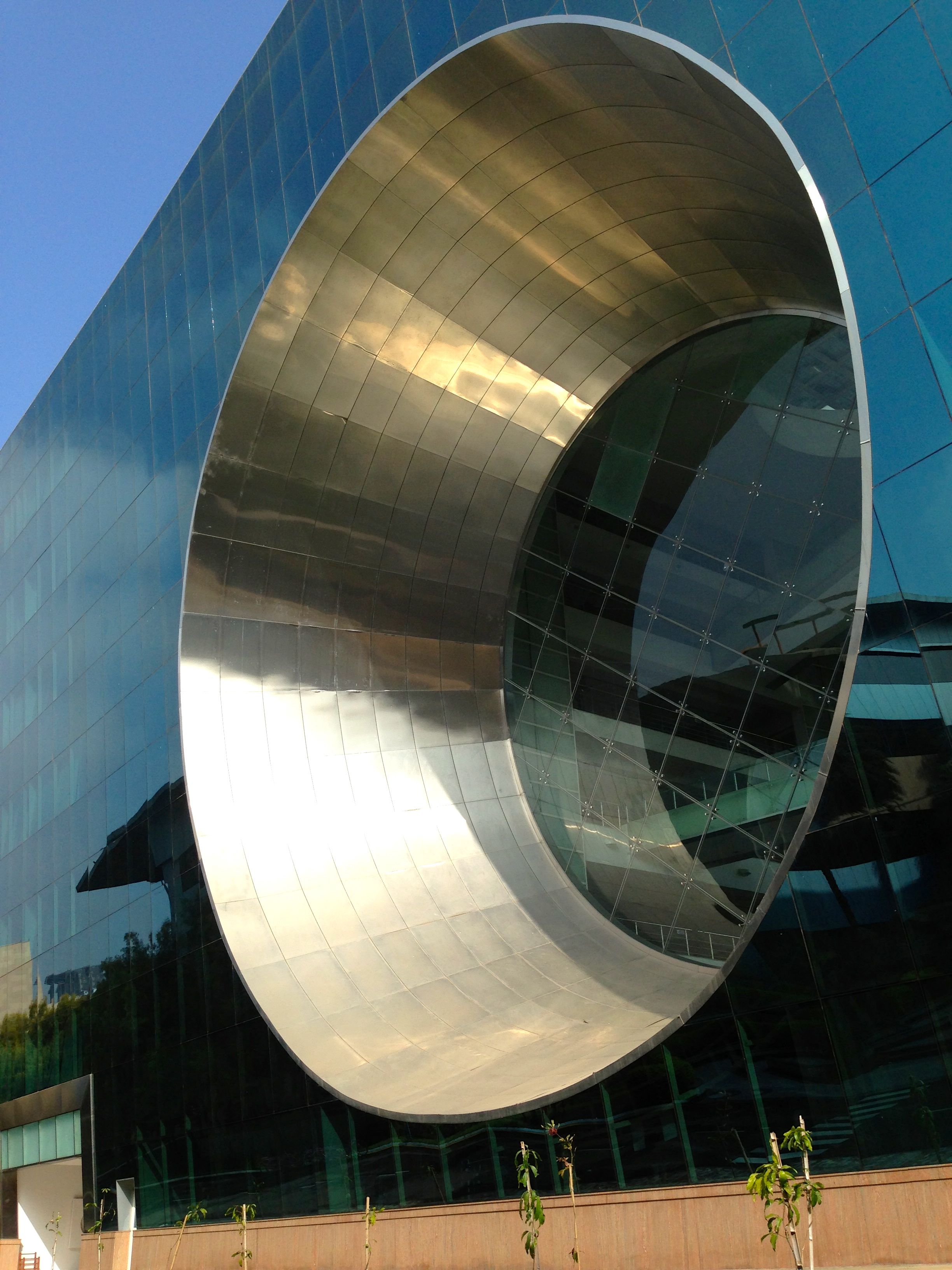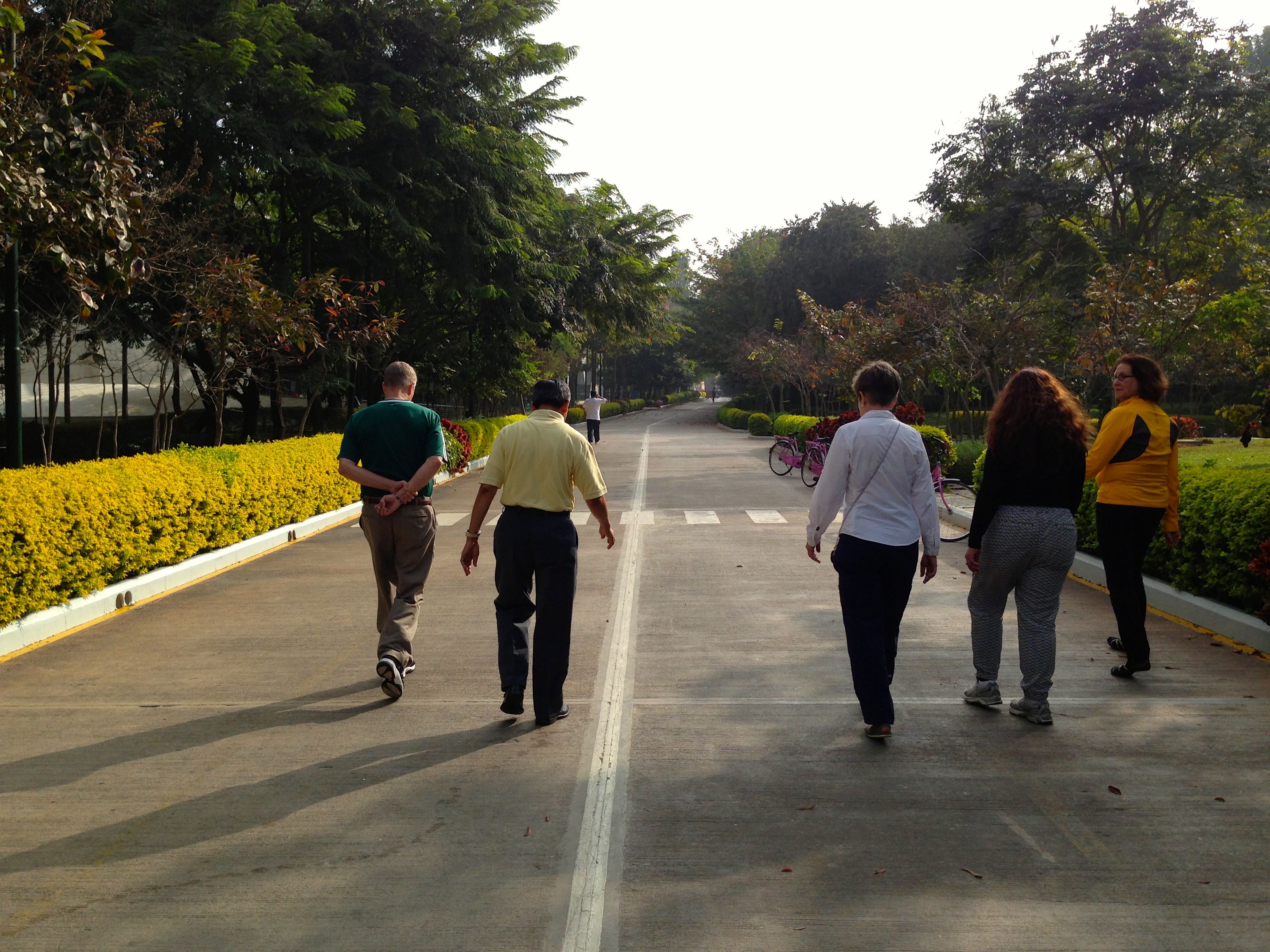BANGALORE – We arrived in India at 4 this morning, and presently drivers whisked us to the campus of Infosys, the IT giant made famous in Thomas L. Friedman’s bestselling 2005 book, “The World is Flat.”

It was here, in Bangalore, that Friedman came to study the forces of globalization, and here that a conversation with then-Infosys CEO Nandan Nilekani inspired the book’s title, according to an interview in Wired magazine:
WIRED: What do you mean the world is flat?
FRIEDMAN: I was in India interviewing Nandan Nilekani at Infosys. And he said to me, “Tom, the playing field is being leveled.” Indians and Chinese were going to compete for work like never before, and Americans weren’t ready. I kept chewing over that phrase – the playing field is being leveled – and then it hit me: Holy mackerel, the world is becoming flat. Several technological and political forces have converged, and that has produced a global, Web-enabled playing field that allows for multiple forms of collaboration without regard to geography or distance – or soon, even language.
That conversation became a touchstone for Friedman’s influential book. It was so popular, even my mother bought copies for all eight of her children.
So why are we here? I’m part of the University of Missouri’s Global Scholars program, which seeks to help faculty build strategic international relationships. The Winter 2014 trip brings 11 faculty members to India, the world’s largest democracy and soon to be its most populous country, the birthplace of Friedman’s “Globalization 3.0″and home to some of the world’s poorest people. It’s a land of contrasts, to be sure, as I learned on my previous trip to India in 2009.
Our fearless trip leaders are Jana Hawley, professor and chair of the Department of Textile and Apparel Management, and Kattesh Katti, curators’ professor of radiology and physics and senior research scientist at the MU Research Reactor.
Here’s the tie-in: Katti, who grew up in India, just happened to be high school buddies with Nilekani. Unfortunately for Katti, he did not get in on the ground floor with Infosys, which was founded in 1981 by seven guys with $250 and since has grown into a multi-billion-dollar global company. But Katti still calls in a few favors from his old friend, including a private chat with us scholars later in the trip.

Meanwhile, we get to enjoy a day at the Infosys campus that includes staying in the upscale “guest house,” really a private hotel with its exclusive restaurant and ayurvedic soaps, and touring the 80-acre grounds. Tomorrow morning, we will hear from company executives.
The forces of economic globalization haven’t slowed, and we scholars are part of intellectual globalization – the sharing of ideas across the continents.
I’d be curious to ask Tom Friedman: What questions do you have for Infosys and its founder now?